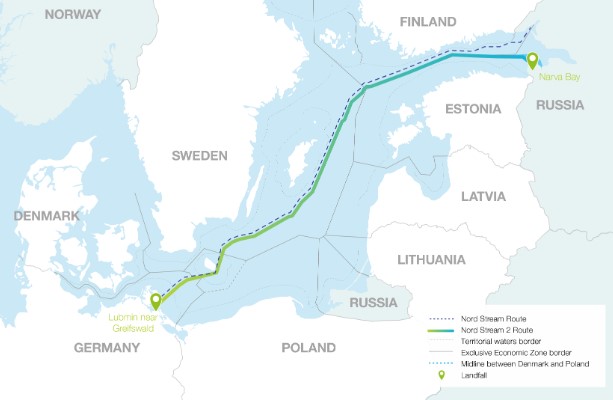Denmark Rebuts Russia's NS2 Claims
Russian media reports that the Danish government is drafting a draft law aimed at ‘derailing’ the Nord Stream 2 project (NS2) are inaccurate, say sources in Copenhagen.
One recent article by Sputnik news agency, citing Russian analysts, advances the idea that the Danish initiative is in response to the latest US sanctions, and that Washington is exerting pressure on Denmark.
However, a Danish official has told NGW that the decision to revise legislation on how subsea pipelines are vetted was taken back in April 2017, long before the latest US sanctions – something that is confirmed by other news reports at the time.
Back in April, the Danish government determined there was no clear basis in Danish law for taking into account the foreign policy or security aspects relating to offshore pipelines and so issued a draft bill for public consultation in June. That consultation has just ended, with responses being analysed.
The draft law will be presented to parliament in October by energy minister Lars Christian Lilleholt and is expected to give Denmark’s foreign ministry first rights to vet such projects. The results of the consultation will be published at the same time.
The official, speaking on the basis of non-attribution, told NGW that all subsea pipelines, so not just NS2 but also the Denmark-Poland-backed BalticPipe once it has taken an investment decision, will be covered by the same revised legislation.
NS2 is under construction and plans to enter service late 2019, while BalticPipe would start up no sooner than 2022.
In theory, the revised legislation – if adopted by parliament – would give Denmark the power to block the current NS2 route, acknowledged the official, but other (non-Danish) routes would remain open to its developer Gazprom.
However, much of the NS2’s existing planned 1,200-km route, as it nears landfall in Germany, runs through Danish waters – including a significant if short section looping around the Danish island of Bornholm.
Days after powers to enact US sanctions against Russia were passed by Congress, German energy firm Uniper's CEO Klaus Schafer on August 8 accused US politicians of talking “not just about Crimea but about the economic interests of the US”, suggesting they were trying to foist US LNG on unwilling European consumers. Uniper is one of five western firms that have agreed to provide financing to Gazprom for its construction of NS2.
Separately Nord Stream 2 company said September 4 its route would “not have a significant negative impact on the Kurgalsky nature reserve” in northwest Russia, or the adjacent Gulf of Finland.

The currently planned Nord Stream 2 route (Map credit: Nord Stream 2 company)
Mark Smedley



